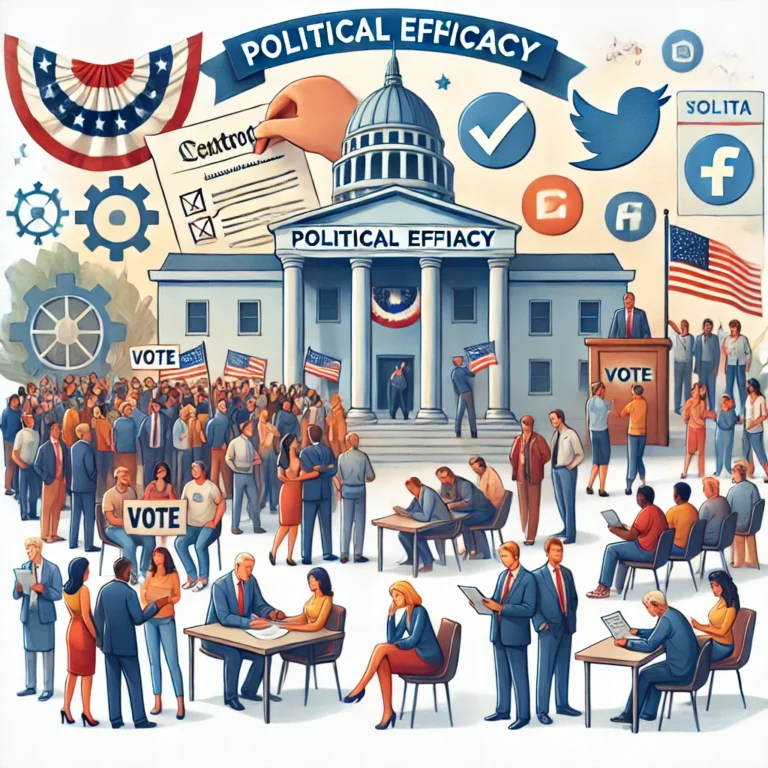Major Shifts in the Political Landscape: This Week’s Key Insights
In an ever-changing political landscape, staying informed is essential to understand how governance is evolving. This week highlights the influence of voter opinions on legislative changes, showing the connection between public sentiment and policy. We’ll explore key stories, from electoral developments to shifts in social issues in 2024. These trends could shape future elections. By engaging with expert analyses and diverse viewpoints, this piece aims to inform and encourage readers to take our political tests and actively engage in shaping their political future.
Analyzing Major Stories on the Political landscape
Voter Opinions on Key Issues
Voter opinions are increasingly pivotal in shaping the political narrative, especially as we approach crucial elections. A notable shift in 2024 is the heightened focus on social issues, where voters are prioritizing topics like healthcare access, climate change, and economic equality. Surveys indicate a growing public demand for comprehensive policy reforms, reflecting a broader desire for systemic change. In particular, younger demographics are more vocal about environmental policies, pushing for legislative action that aligns with sustainability goals. Economic concerns, such as inflation and job security, continue to dominate discussions, influencing voter expectations from political candidates. As these issues gain traction, they are likely to be decisive in upcoming electoral campaigns. Understanding these shifts in public opinion is essential for political actors who aim to remain relevant and responsive. This evolving landscape underscores the importance of aligning legislative agendas with the pressing needs and values of the electorate.
Legislative Changes in Focus
This week, legislative changes are taking center stage, driven by a complex interplay of voter demands and political strategy.In response to shifting public opinion, lawmakers are revisiting policies on healthcare reform and climate initiatives to align with current priorities. There is a strong push for legislation addressing economic inequality, including proposals to raise the minimum wage and expand affordable housing. Education reform is also under debate, focusing on funding and curriculum updates to serve a diverse society. Social issues in 2024, such as digital privacy and voting rights, are prompting legislative reviews as well. These changes show efforts to adapt to pressing issues, signaling potential shifts that could impact governance long-term.

Electoral Developments and Impacts
As we navigate the political currents of 2024, electoral developments are creating ripples across the political spectrum. Recent changes in voter registration laws and redistricting efforts are reshaping the electoral landscape, potentially influencing voter turnout and election outcomes. These adjustments are not just administrative; they reflect deeper strategic maneuvers by political parties to secure advantages in upcoming elections. Meanwhile, the rise of digital campaigning continues to transform how candidates engage with voters, leveraging social media platforms to reach a broader audience. This digital shift is particularly impactful among younger voters, who are more likely to engage with political content online. Additionally, debates over voting rights and election security are intensifying, with implications for how elections will be conducted. These developments underscore the dynamic nature of electoral politics, where shifts in regulations and technology are redefining traditional campaigning and voting practices, with significant potential impacts on future election results.

Trends Shaping the Political Landscape
Emerging Social Issues in 2024
In 2024, several social issues are coming to the forefront, shaping both public discourse and policy agendas. Climate change remains a critical concern, with increasing calls for urgent action as extreme weather events become more frequent. This urgency is echoed by a growing demand for sustainable practices across industries. Healthcare access continues to be a contentious issue, with debates focusing on affordability and equity in medical services. The digital divide is another pressing topic, as disparities in technology access highlight broader inequities in education and economic opportunities. Additionally, discussions around racial and gender equality are gaining momentum, pushing for systemic changes in various sectors, from corporate boardrooms to educational institutions. These emerging issues reflect a broader societal shift towards inclusivity and resilience, requiring robust policy responses that address the root causes of inequality and environmental degradation. As these topics evolve, they will likely influence both public opinion and legislative priorities in the near future.
Current Issues in the World 2024
In 2024, the world faces a myriad of issues that are influencing global politics and economies. The persistent challenge of climate change continues to demand international cooperation, as nations strive to meet carbon reduction targets while balancing economic growth. Geopolitical tensions, particularly in regions like Eastern Europe and the South China Sea, are exacerbating global instability, impacting trade routes and diplomatic relations. The economic fallout from these tensions, coupled with inflationary pressures, is affecting global markets and consumer behavior. Public health remains a critical issue, with ongoing efforts to strengthen healthcare systems and prepare for future pandemics. In the digital realm, cybersecurity threats are escalating, prompting countries to enhance their defenses against cyberattacks. These issues are interconnected, necessitating comprehensive and collaborative approaches to address them effectively. As these global challenges evolve, they will continue to shape international policies and influence domestic agendas, underscoring the complexity of navigating today’s interconnected world.

Implications for Upcoming Elections in the current Political Landscape
The political and social issues of 2024 are set to heavily influence upcoming elections. Voter priorities are shifting, with demands for action on climate, healthcare reform, and economic stability. These issues may reshape party platforms as politicians adapt to evolving voter expectations. Digital campaigning is giving candidates a chance to connect directly with voters, especially younger ones who are playing a bigger role in shaping outcomes. Debates on voting rights and election integrity will likely affect turnout and confidence. Candidates who address these issues with clear solutions will have an advantage, potentially shifting the balance of power in government.

Insights and Expert Analysis on this week’s Political Landscape
Diverse Perspectives on Key Events
Understanding the diverse perspectives on key events is crucial for a holistic view of the political landscape. Experts from various fields offer nuanced insights into how current issues are perceived and addressed. For instance, economists highlight the implications of inflation and unemployment on voter sentiment, while environmental scientists emphasize the urgency of climate policies. Social advocates bring attention to the disparities in healthcare access and education, arguing for more equitable solutions. Meanwhile, political analysts dissect the strategic maneuvers of parties and candidates, providing context for their policy decisions and campaign tactics. These varied viewpoints enrich our understanding of complex issues, illustrating how different sectors intersect and influence each other. By considering these diverse perspectives, we can better appreciate the multifaceted nature of political events and their broader societal impacts. This comprehensive approach not only informs but also empowers readers to engage more deeply with the issues that shape their political environment.

Expert Predictions for Future Changes
Experts are predicting changes in the political landscape based on current trends and historical patterns. Analysts believe climate policy will take center stage in elections, with candidates needing clear strategies to address environmental challenges. Economists expect continued market volatility due to geopolitical tensions and trade policy shifts, influencing global economic agendas. In technology, experts foresee more focus on digital infrastructure, as cybersecurity and data privacy become key security issues. Social scientists predict ongoing social justice reforms, fueled by grassroots movements for equality. These predictions highlight the interconnected nature of global issues and the need for adaptive governance. Anticipating these shifts can help policymakers stay responsive to their constituencies and the global community.

Engaging with Political Dynamics
Engaging with political dynamics requires an understanding of the shifting forces that influence governance and policy-making. Individuals can start by staying informed about key issues, such as social justice, economic policies, and environmental challenges, which are currently shaping political agendas. Participating in public forums, attending town halls, and engaging with representatives are effective ways to contribute actively to the political discourse. Moreover, leveraging digital platforms for civic engagement can amplify voices and foster community-driven initiatives. Educating oneself about the electoral process and the impact of legislation on daily life further empowers individuals to make informed decisions at the ballot box. By understanding the broader implications of political actions and policies, citizens can advocate for changes that reflect their values and interests. This active participation not only strengthens democratic processes but also ensures that diverse perspectives are considered in shaping the future political landscape, ultimately leading to more inclusive and effective governance.







